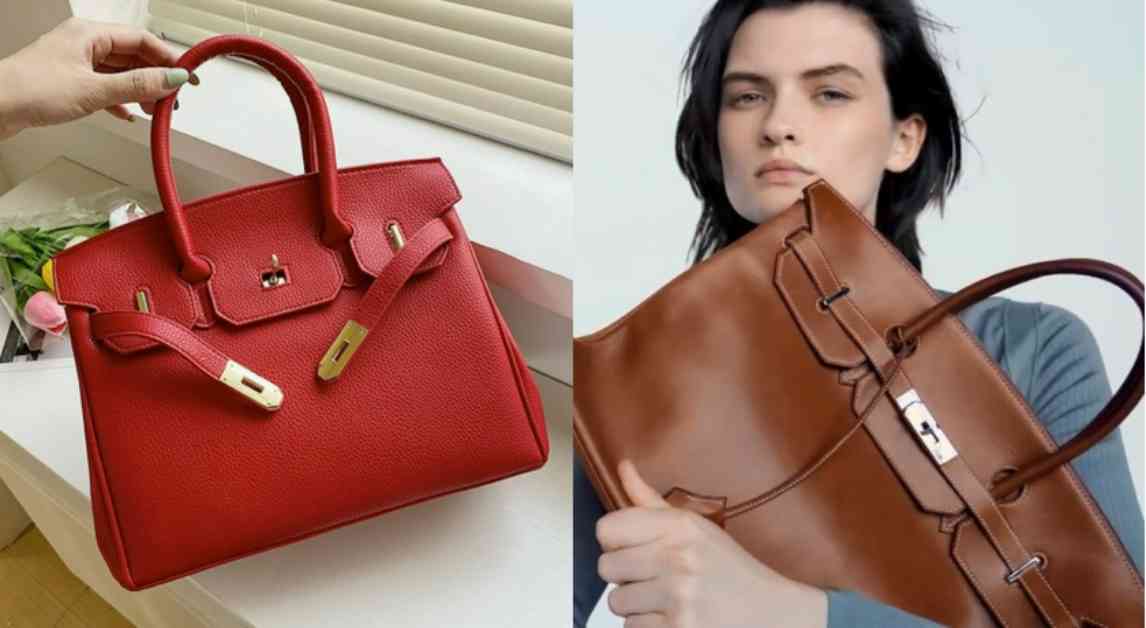The infamous Hermes Birkin bag has long been a symbol of luxury and exclusivity in the fashion world, with its classic design and sky-high price tag. However, the recent introduction of a dupe called the Wokin bag by a well-known US retailer, Walmart, has caused quite a stir in the industry. Priced at just $78, a fraction of the cost of the original Birkin bag, the Wokin bag flew off the shelves in record time, leaving fashionistas scrambling to get their hands on one.
The Wokin bag bears a striking resemblance to the iconic Birkin bag, with many customers unable to resist the temptation of owning a look-alike at a fraction of the cost. While the Wokin bag’s exterior is made of genuine leather, the interior features synthetic leather, making it an affordable alternative for those who crave luxury on a budget.
However, the similarities between the Wokin bag and the Birkin bag have raised concerns about copyright infringement. This situation is eerily reminiscent of a case from 13 years ago involving a Taiwanese brand called “Jiaozhao Bao.” Jiaozhao Bao faced legal action from Hermes for directly copying the Birkin bag’s design and even changing the trademark from Hermes’ carriage to a “banana carriage.” The Jiaozhao Bao bags became a sensation, especially after being featured as wedding guest favors by a well-known celebrity.
Ultimately, Jiaozhao Bao was found guilty of violating trademark laws and was forced to publicly apologize, compensate Hermes, and destroy all remaining inventory. The company involved in the case even had to cease operations, marking a definitive end to their business. The question now arises whether the makers of the Wokin bag will face a similar fate, as the fashion world eagerly watches to see how this situation unfolds.
The allure of luxury at an affordable price is undeniable, but where do we draw the line between inspiration and imitation in the fashion industry? The story of the Wokin bag serves as a cautionary tale, highlighting the fine line between homage and infringement in the cutthroat world of fashion design. As consumers, it’s essential to be aware of the ethical implications of our purchasing decisions and support brands that uphold integrity and creativity in their designs. Remember, fashion is an art form that thrives on innovation and originality, so let’s celebrate and support the visionaries who push boundaries and redefine the meaning of luxury in the industry.












